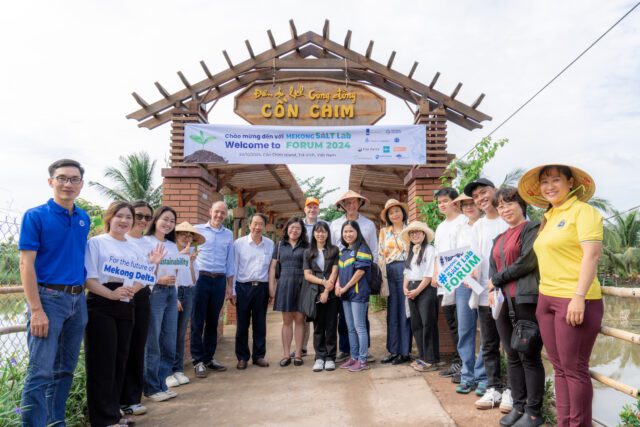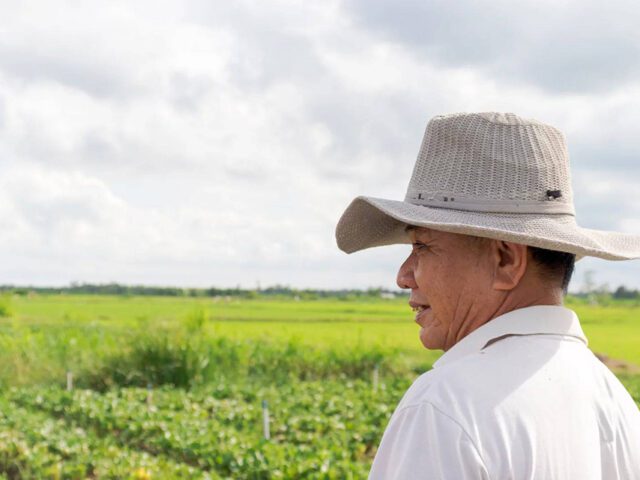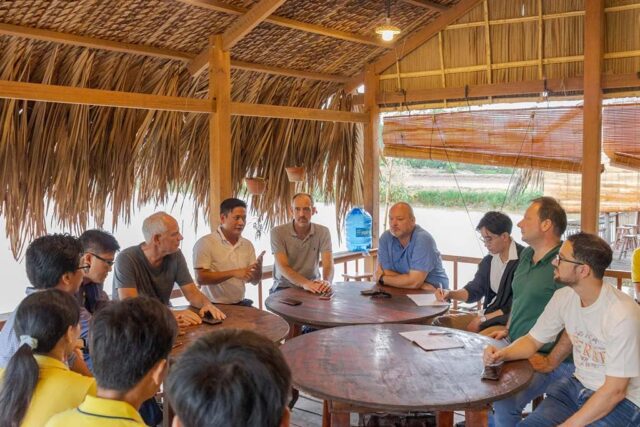The Mekong Salt Lab 2024 forum was successfully held in Tra Vinh on October 24th and 25th, with the participation of domestic and international organizations.
At the Mekong Salt Lab 2024 forum, scientists and experts from universities, companies, and businesses both domestically and internationally, as well as local authorities, discussed and proposed solutions to support sustainable economic and environmental development for communities facing the increasingly complex challenges of climate change, particularly salt intrusion and drought in the Mekong Delta.
The forum had two main activities: a field trip to visit experimental models being implemented and operated in Con Chim, Hoa Minh commune, Chau Thanh district on October 24th; and a technical workshop on October 25th to discuss strategies for building a sustainable value chain for the saltwater agriculture sector with the participation of scientists in developing models for the Mekong Salt Lab project in the upcoming phase (phase 3).
The event was attended by Mr. Daniël Coenraad Stork – Consul General of the Kingdom of the Netherlands in Ho Chi Minh City; Mr. Willem Timmerman – First Secretary Water and Climate, Embassy of the Kingdom of the Netherlands in Vietnam; Mr. Gregor Van Essen – Director of The Water Agency, Netherlands, Director of the Mekong Salt Lab project; Prof. Dr. Pham Tiet Khanh – Chairman of the Board of Tra Vinh University, President of the Vietnam Community College Association; Assoc. Prof. Dr. Diep Thanh Tung – Vice Rector of Tra Vinh University; representatives of leaders from departments and agencies of Soc Trang, Tra Vinh; representatives of companies, businesses, universities domestically and internationally, Mekong Salt Lab experts, etc.
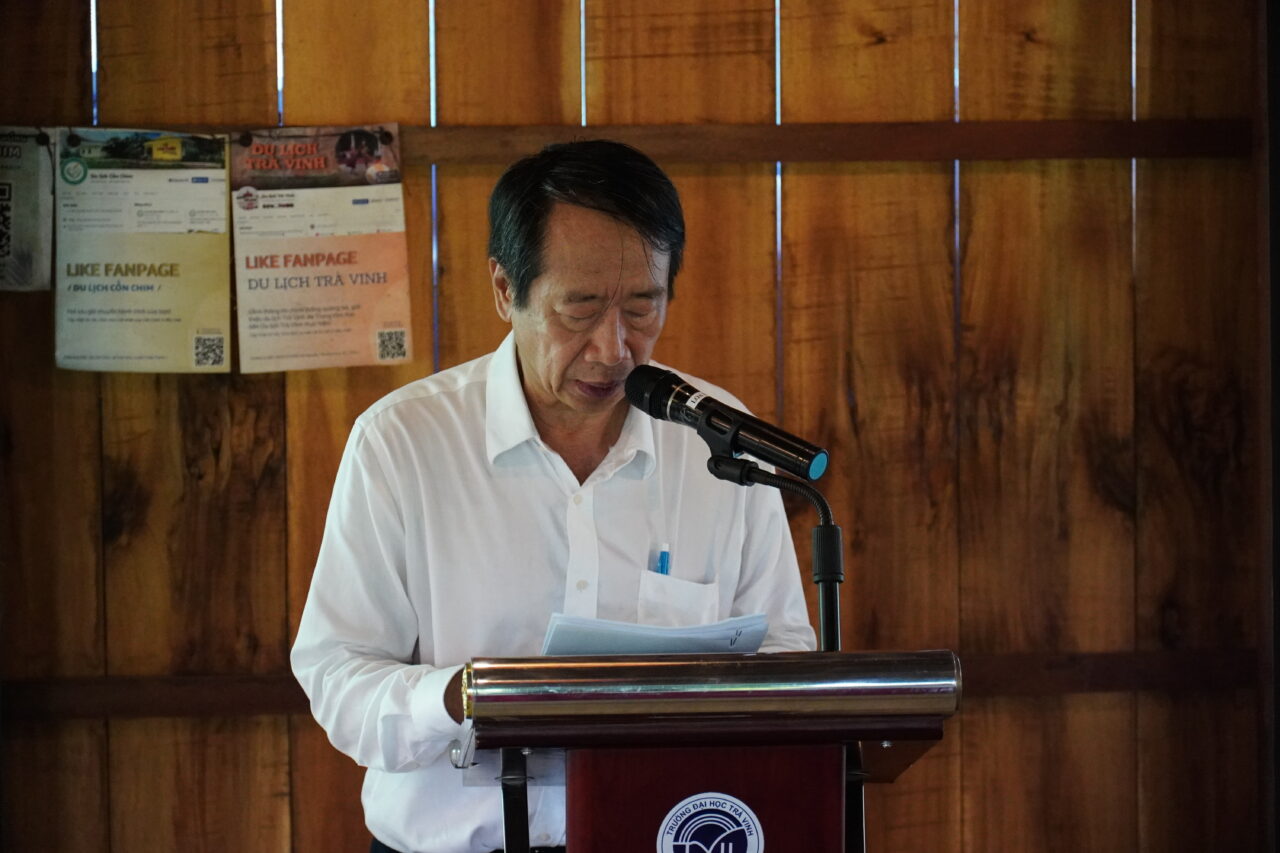
Prof. Dr. Pham Tiet Khanh – Chairman of the Board of Tra Vinh University, President of the Vietnam Community College Association – delivered the opening speech at the workshop
Prof. Dr. Pham Tiet Khanh – Chairman of the Board of Tra Vinh University, President of the Vietnam Community College Association – highlighted the importance of addressing the increasingly serious situation of climate change and salt intrusion in the Mekong Delta in general and Tra Vinh in particular, and summarized the achievements of the project in phase 2.
Dr. Khanh also expressed his gratitude for the support from the Kingdom of the Netherlands, considering this cooperation as a foundation for collaboration to mitigate the impacts of climate change and salt intrusion in the Mekong Delta.
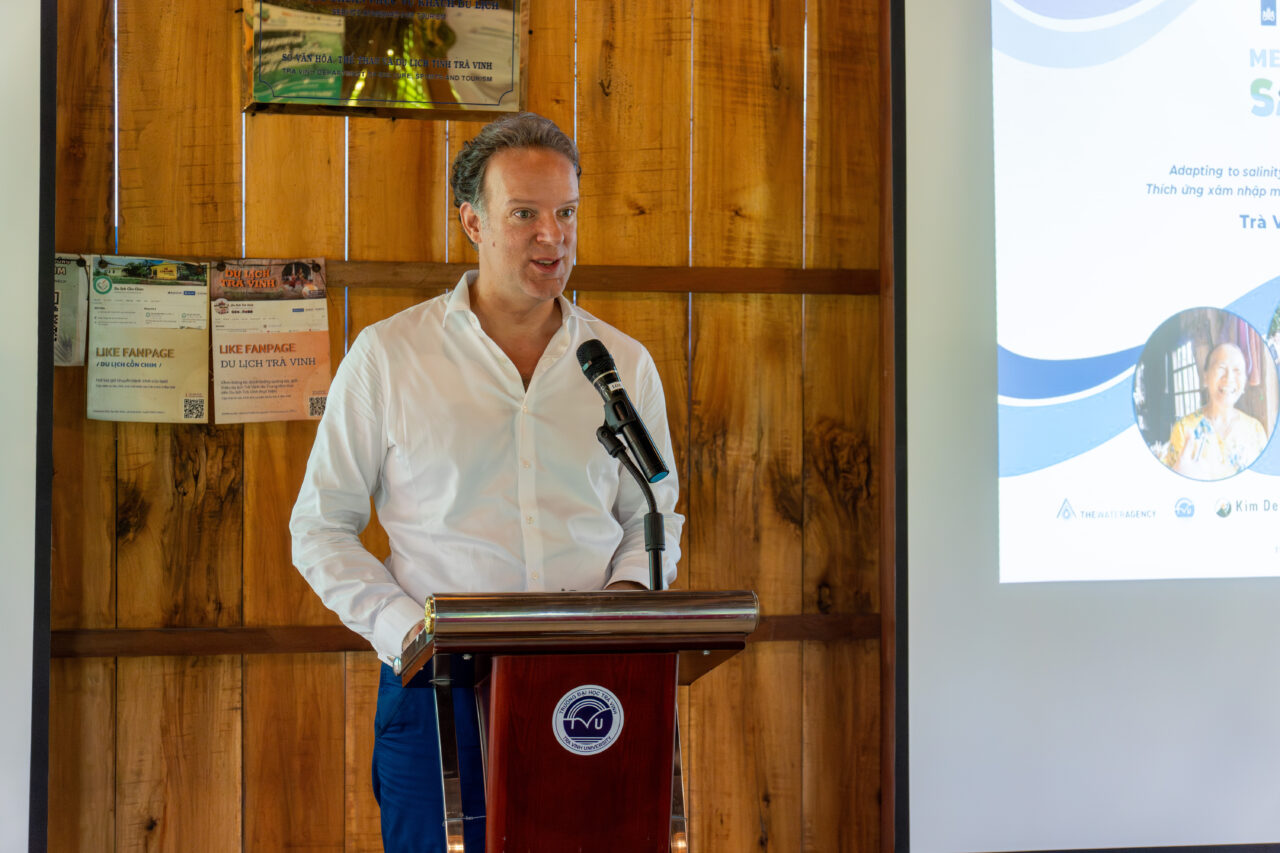
Mr. Daniël Coenraad Stork – Consul General of the Kingdom of the Netherlands in Ho Chi Minh City speaking at the forum.
At the workshop in Con Chim, Mr. Gregor Van Essen – Director of The Water Agency, Netherlands – shared an overview of the project and expressed his desire to replicate this successful model to other provinces facing the challenges of saltwater and climate change. The goal of the project is to build a climate-resilient agriculture and sustainable water management for the Mekong Delta and Vietnam.
Guests visiting Con Chim learned about and listened to how models such as hydroponic systems, freshwater collection and storage, water treatment, wastewater, and constructed wetlands operate. During the visit, Mr. Daniël Coenraad Stork expressed his confidence that the project’s results would bring practical benefits to the people of the Mekong Delta and the region’s agriculture.
Ms. Nguyen Thi Bich Van, a household cooperating with the project to pilot a model on living with climate change and salt intrusion, said that the implemented model has many practical benefits for her family. “From the equipment and reservoirs, filters, we can use water for household activities and tourism businesses, water for growing vegetables, and water for irrigating crops year-round. With very simple and environmentally friendly methods, we will be able to adapt to the harsh climate changes such as drought and salt intrusion. The current problem is that we need to understand the installation, operation processes, and have the knowledge to support the community in investing and operating the project models that have been popularized in adapting and developing sustainably with drought and salt intrusion,” said Ms. Van.
Mr. Huynh Cong Lap, Secretary of the Chau Thanh District Party Committee, Tra Vinh province, said: “Through information from the Mekong Salt Lab 2024 project and the pilot models for people to live with climate change and salt intrusion, we believe that the project’s goal is in the right direction that our locality needs, with practical benefits. Adapting to climate change, especially drought and salt intrusion; shifting to a green economy, green agriculture, and environmental friendliness is the development strategy that the locality is implementing. Therefore, we will promote and encourage people to cooperate and replicate the effective models from the project.”
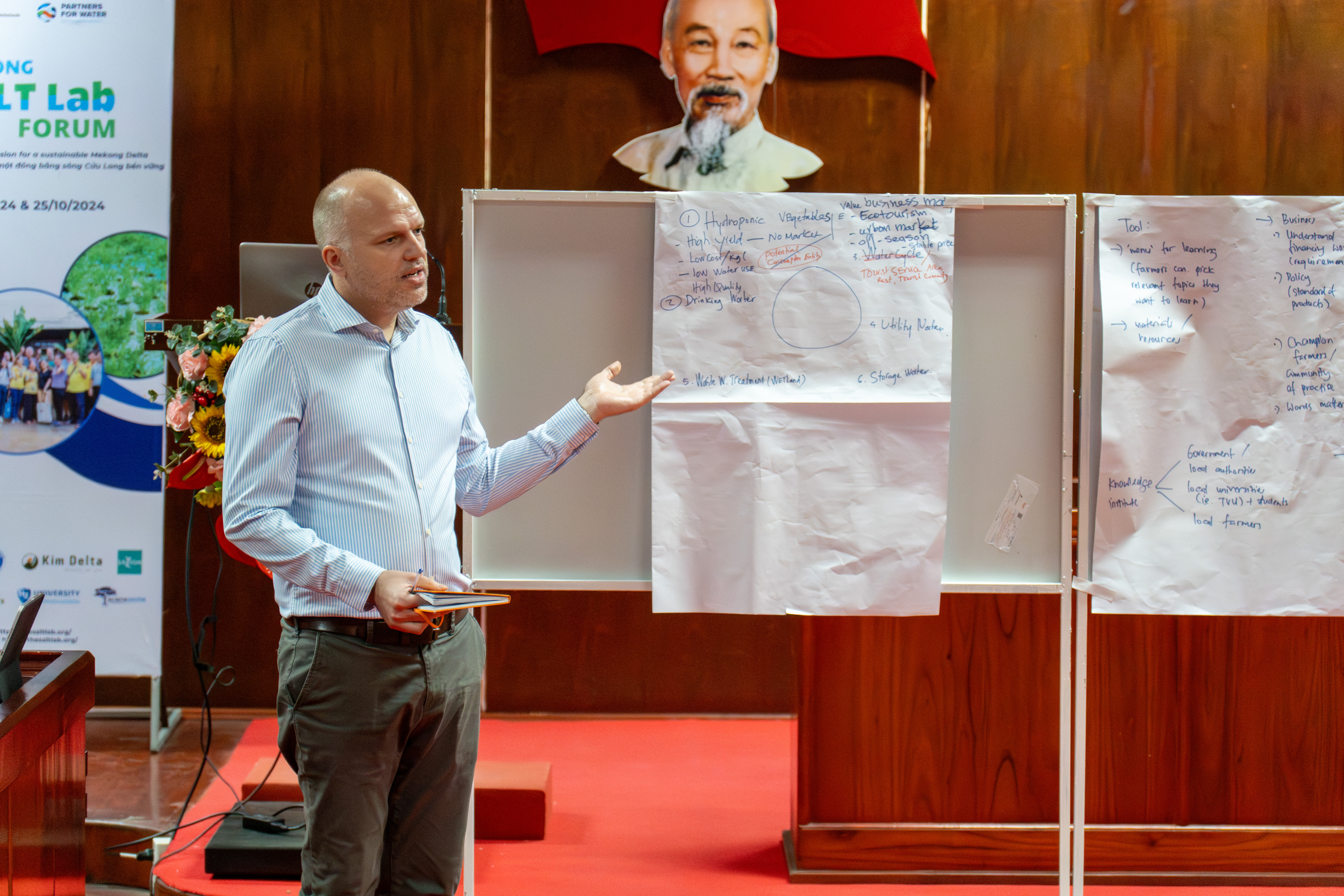
Mr. Willem Timmerman – First Secretary Water and Climate, Embassy of the Kingdom of the Netherlands in Vietnam.
In the second-day session (October 25th) at Tra Vinh University, the workshop focused on discussing the prospects for developing climate-smart agriculture models, effective water management; sharing barriers, challenges, and opportunities to build a sustainable agriculture for the Mekong Delta. The guests of the forum agreed on the urgent need to join hands to strengthen the position of the Mekong Delta – as a center for rice and seafood production, as well as a place contributing great cultural value and biodiversity in the context of unpredictable climate change.
Concluding the forum, Mr. Willem Timmerman – First Secretary Water and Climate, Embassy of the Kingdom of the Netherlands in Vietnam – expressed his belief that the lessons from the Mekong Salt Lab and collaborative efforts on sustainable water use would create a significant step forward for climate-smart agriculture, especially for the increasingly severe salinity and salt intrusion.
Discover Mekong Salt Lab Website for more information.

